#PracticeRoomDays #WhereItAllBegins
What does it take to create a rehearsal room from scratch? Before you answer with the word “money” there are two other things to consider: knowledge, inspiration and a solid plan! In this article we will hopefully provide all three of these things. There are certain components of a rehearsal room that are indispensable, without them the musicians would either not hear themselves or the output of their musical efforts would be less than satisfactory. Of course, many bands start out humbly, jamming unplugged, huddled in a circle in their parents’ basement. But once you reach a certain level of skill and commitment (or not) it’s time to think about a highly-functional space dedicated for your craft… ???
1. The right room
Some things to think about when choosing a room for your rehearsal space (unless you’re building one from scratch, but let’s assume you’re not) are:
Location: Do you want to be lugging your heavy gear across the city and wasting an hour in transit? Rent: How much are you willing to pay for renting the space? Do you want a monthly contract or somewhere where you can pay per hour? Dimensions: Do you need a huge room or something cozy? What suits your needs / gear setup? Shape: Some acoustics experts agree that if the shape of your room is completely composed of 90-degree angles it’s not ideal for acoustics. Oddly shaped rooms are better unless they are strategically treated acoustically… Acoustic treatment: We’ll touch on that later this week in an upcoming article. Amenities: Does the space need to be heated or air-conditioned? Do you need running water? Does it need a window for natural light or do you prefer a cave with your own atmospheric lighting?
2. PA system
- the box PA110 A Bundle
- LD Systems PA
A PA system is something you will need to amplify an overall mix of your band’s instruments and vocals. It usually consists of two (or more) speakers and stands to amplify the mix at a volume compatible with the volume of the acoustic drums (if there are any). You could go without a PA system by using separate amps for all vocals and instruments but it is usually much harder to get an even mix this way.
3. Mixer
To get the audio signal into the PA speakers you will need a mixer, which come in many different types. The most common mixer for a rehearsal room is an analog mixer with 12 channels but even a 5-channel mixer could be enough, depending on your band’s setup. Digital mixers are also great in that they allow for more versatile AUX output settings and individual (sometimes WIFI adjustable) AUX mixes. This allows each musician to have their own customised mix in their in-ear monitors.
- 12-channel analog mixer
- 5-channel analog mixer
- Soundcraft Ui16 digital with WIFI
- Midas MR 18 digital with WIFI
4. Amplifiers
Whether it’s to amplify your electric guitar, bass guitar, keyboard or vocals…. Generally speaking, for rock bands, you will want to put the electric guitar(s) through an amp. A bass amp can be used for the bass or alternatively it can be put directly through the mixer and PA speakers. This is called Direct Injection (DI) and sometimes, if there is the risk of electrical interference, a DI box is required. The same goes for the keyboard (click here for keyboard amps). The drums usually are fine un-mic’d for rehearsing, unless they are electronic drums, in which case they would go DI.
- Vox AC15 C1X (guitar)
- Markbass Mini CMD 121P (bass)
- Laney AH150 (keys)
5. Drum kit
Having a drum kit in the rehearsal space depends on what style of music you are playing. Some genres or configurations only require a drum machine and/or percussion. If your room is not well sound-proofed an electronic drum kit might be ideal. To keep your drum kit from slippin’ & slidin’ around you might want to consider putting a drum rug under it.
- DW Exotic Tobacco Fade over Elm
- Millenium MPS-425 E-Drum Mesh Set
6. Buy, Rent or Freeload off your parents 🙂
How do you want to pay for the space? Ideally it would be great to be the owner of the space but not everyone has that kind of money. If you’re renting the locale per month you could consider splitting the rent with other bands or artists and setting up a booking schedule. If the space is a room in your parents’ house, even better! Consider yourself very lucky in this case. Young people often use their parents’ basement or garage for this purpose…
- Garage
- Another garage
- Basement
7. Indispensable Accessories
Take your rehearsal space to the next level, read the article “How to pimp your practice room” to find out how to optimize your rehearsing or jamming experience!
We hope that this article has shed some light on what you will need to create a functional space for you, your band mates and your music. ? If you think we’ve missed something in the “essentials list” please let us know in the comments below. ?







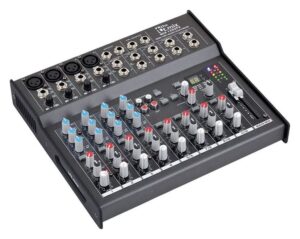


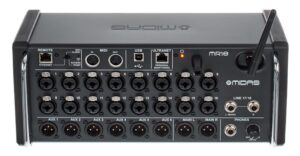
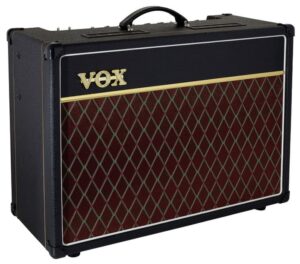




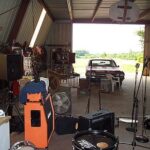


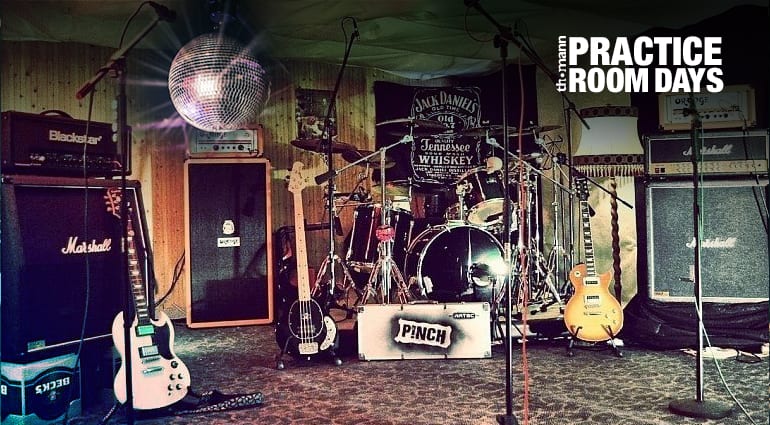














Comments 1